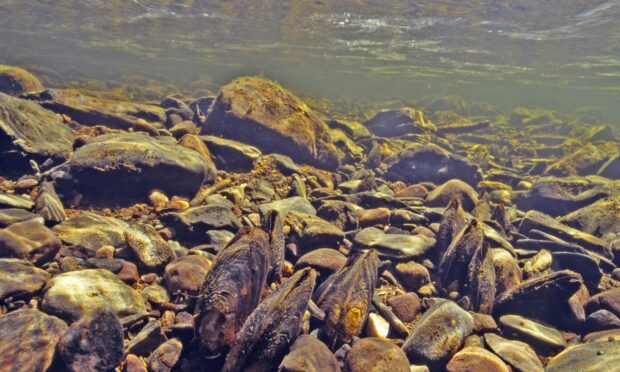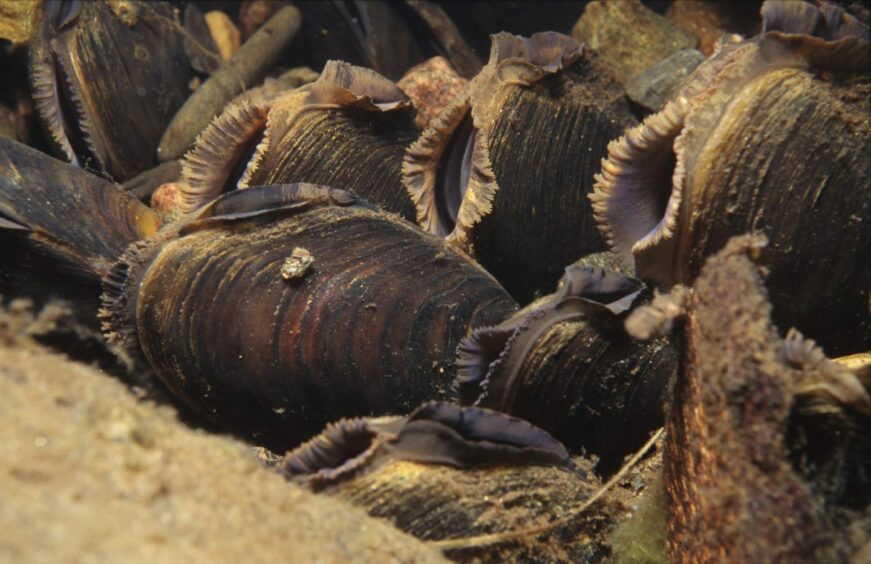Freshwater pearl mussels have been found in two Sutherland lochs in an “exciting” discovery which could save the species.
Normally found in Scottish rivers, the critically-endangered and highly-prized molluscs were uncovered by NatureScot research teams backed by the Central Research Fund.
Researchers believe the mussels likely made their way into the lochs carried on the gills of migrating fish such as trout or salmon.
They probably remained attached to the fish for around a year before falling off and living independently within clean water.
The mussels are sought after for the expensive pearls inside, which has led to a significant decline due to illegal pearl fishing, poor water quality and habitat damage.
As filter feeders, the mussels are extremely sensitive to water pollution, so remote waters, rarely impacted by human activity, are ideal.
An adult mussel can filter more water than an average person uses to shower and can live up to 100 years.
Freshwater pearl mussels on brink of extinction
Only a small number have been found in two lochs in Sutherland, which remain unnamed to prevent illegal pearl-poaching.
They are protected under the Wildlife and Countryside Act 1981, which makes it illegal to disturb, take, kill or injure endangered animals.
NatureScot is leading the effort to conserve and protect the species which is on the brink of extinction in Scotland.
Iain Sime, who led the project, said: “Other mussel species, including the much more widespread swan and duck mussels, are known to live and breed in Scottish lochs, but up until now we’ve had no evidence to suggest that pearl mussels routinely do this too.
“This project was an exciting first step in exploring our lochs and we’re keen to do further surveys to better understand more about this critically-endangered species.
“We don’t yet know whether they can breed in lochs and we want to learn more about a loch pearl mussel’s relationship with their host fish.”


Conversation